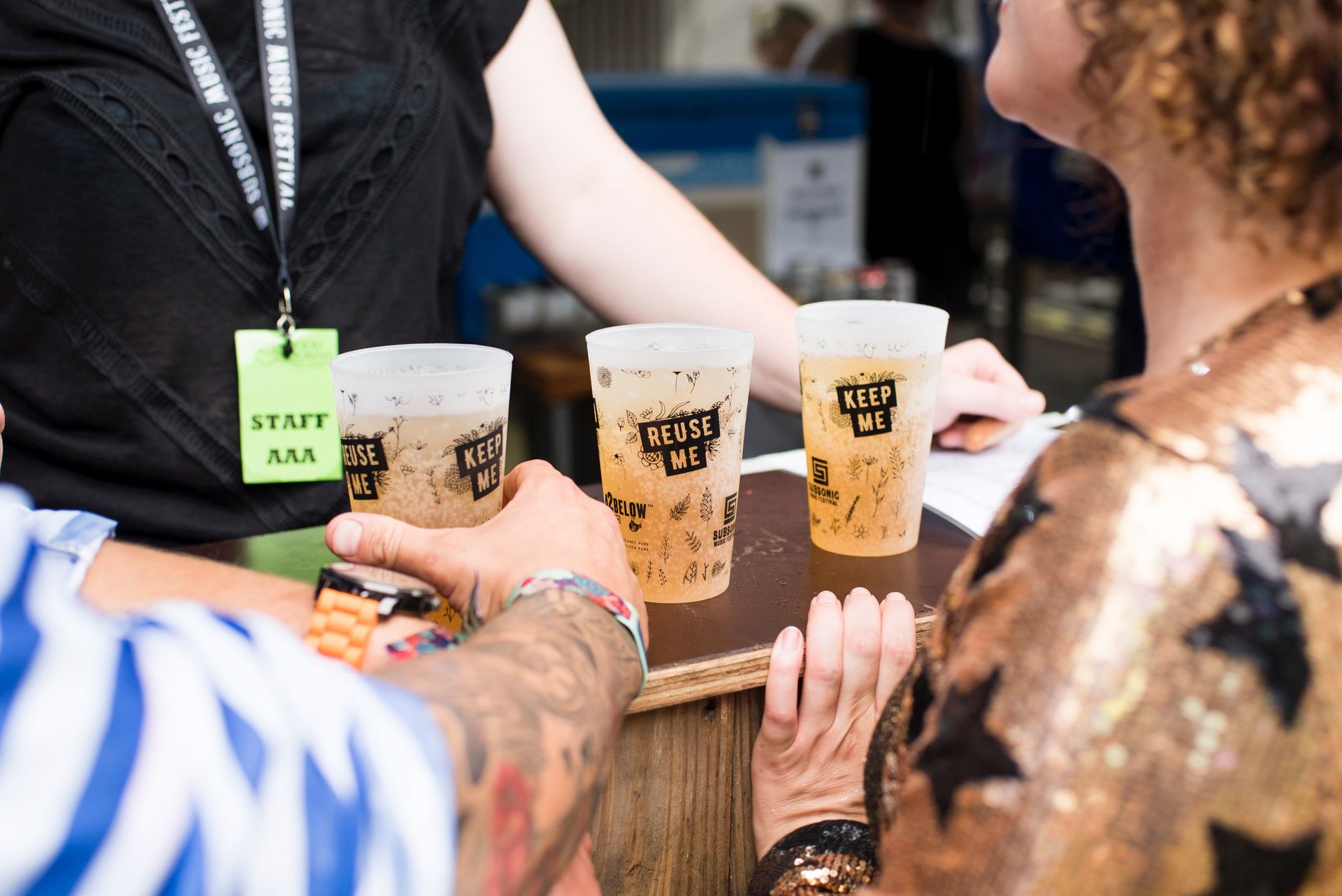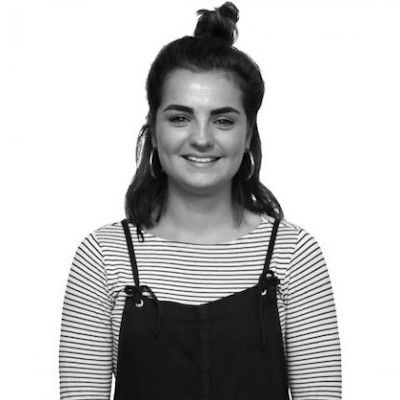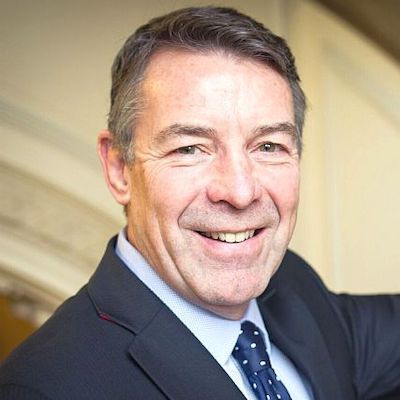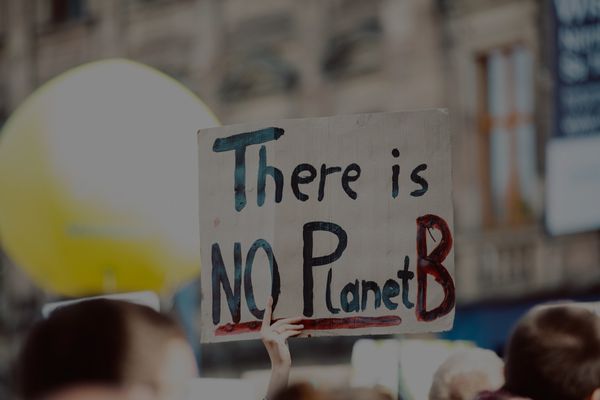On Wednesday 24th November, Hire Space hosted the very first hybrid EventLAB, which brought over 450 event professionals together at Central Hall Westminster and on Arena to learn and get inspired for their future events.
Taking place just after COP26 ended, sustainability played a key role in EventLAB's ethos and agenda. This panel, on the impact of code red on the events sector, delved into the challenges and opportunities faced by the sector, and provided some key starting points for attendees to make shifts in their own lives and work.
We were joined by Ellie Ashton-Melia, Community Lead at isla, Chantal Kerr-Sheppard, Co-Founder of Event Cycle, Paul Southern, Managing Director at Central Hall Westminster, and Duncan Reid, Founder of Reset Connect, who moderated the panel.
TABLE OF CONTENTS
1. Watch The Discussion
2. Key Takeaways
3. About The Speakers
WATCH THE DISCUSSION
KEY TAKEAWAYS
THE ROLE OF THE EVENTS INDUSTRY
The events industry has a huge role to play in reducing the impact of our actions on the environment, both through the events we put on, and through encouraging other sectors to transition to a more sustainable future.
At an event level, organisers have the power to make the events we put on more environmentally sound by using sustainable suppliers, keeping the supply chain local, and making sure all items used can be recycled or repurposed. Each event is also a live case study of sustainable planning in action, and sets an example for other events to follow.
Events also bring people together to learn and experience new things, which provides an opportunity for education and influencing behavioural change. When people see how well sustainable practices work (for instance, having reusable glasses instead of plastic cups), they become more likely to implement these solutions in their own workplaces.
CHOOSE ONE AREA OF SUSTAINABILITY AND FOCUS ON IT
Transitioning to a sustainable model can be overwhelming, but the advice from the speakers was that you don’t have to tackle everything at once. Choose one area that you want to focus on and make sure that you do it well, for instance sourcing catering from sustainable suppliers, eliminating plastic from your event, or keeping your supply chain as local as possible.
You need to ensure that this objective is written into your event plan and RFP from the very beginning, so that you know the suppliers coming on board will be able to deliver it. If eliminating plastic waste is your key objective, for instance, you'll have to make sure that every one of your suppliers knows they need to get rid of plastic throughout their supply chain.

HOLD SUPPLIERS TO THEIR WORD
Having a clear RFP means that your suppliers should be prepared to deliver on the sustainability factors they've promised. To verify that everything your suppliers have promised will be fulfilled, every supplier and organisation should have a sustainability policy to show their environmental commitments and how they've been implementing these.
Eventprofs should be able to ask for this policy from a supplier in the procurement process, to see how suppliers measure up to the event goals, and decide whether they're the right partner for the event. And if a supplier comes on board and doesn't deliver on their commitments? It might sound harsh, but don't use them again. Supply follows demand so when it comes to sustainable commitments it's important to stick to your guns and go with a no-yield approach to partnerships.
UNDERSTAND YOUR EMISSIONS
Being aware of the impact of your work is hugely important: after all, if you don’t know what contributes to your footprint, how can you know where to make changes? The speakers helped to break down what the areas that eventprofs should consider when planning events, and give pointers on where to cut emissions in our businesses.
SCOPE 1
Direct emissions from your owned assets such as your company buildings and vehicles. These are inbuilt in your organisation, and you have a higher degree of control over them, for instance choosing which vehicles you use.
SCOPE 2
Indirect emissions from your owned assets, such as heating, gas, and electricity. This area has plenty of room for an easy win, with it being easy to change your suppliers to renewable energy providers.
SCOPE 3
Indirect emissions from assets owned by others but that you benefit from, such as delegate travel, branding, investments, and transportation. You may think you have less control over these, but you can make a big difference by choosing your external suppliers wisely. Read on for some top tips on making your buyer's power work for change.
TOP TIPS FOR ORGANISERS
- Having clear objectives from the very beginning of the planning process means that you'll be able to achieve the most change, and work with people who share your commitments. You can find over 200 venues and suppliers committed to sustainability at Netzerocarbonevents.org.
- Use renewable energy as much as possible in your supply chain, from heating your own buildings, to powering the event venue, and choosing AV providers that are also using green energy. Use Big Clean Switch for sustainability-focused comparisons on energy suppliers.
- Know which vehicles you’re bringing on site and where they’re travelling from so you can track what your emissions are. Try to cut down on transportation distances as much as possible, or aim to use companies that use hybrid vehicles. You can use Tracker Plus to keep track of these emissions.
- Use resources provided by isla and other advisory companies to guide your decisions. isla have just produced a print buying guide for event professionals so that you can make better choices around printing materials.
- Move your work pensions to greener banks or to invest in greener funds. This can sometimes be done within the same bank with a simple process, or you can use Make My Money Matter for advice on how to make the switch.

ABOUT THE SPEAKERS
DUNCAN REID, FOUNDER, RESET CONNECT
With over 20 years experience running large-scale events & media products, Duncan has led award-winning exhibition, conference & publishing teams in the US, UK and across the world. Previous awards include Best Trade show and Best Conference at the UK's AEO & EN awards, and Trade Show Executive Fastest 50 in the US. He is past-Chairman of the UK's AEO Development Board.

ELLIE ASHTON-MELIA, COMMUNITY LEAD, ISLA
With a background in marketing and events, Ellie has broad experience delivering event programmes for global brands and has devised communication and sustainability strategies for fast-growth start-ups. Taking her passion for sustainability and climate activism she now communicates isla’s ambitions to create a more sustainable, resilient events industry and supports their action-driven network to become the driving force of that change.

CHANTAL KERR-SHEPPARD, CO-FOUNDER, EVENT CYCLE
An unshakable optimist with a pragmatic approach, Chantal believes in leaving the world better than she found it. Combining her wealth of experience delivering large-scale global events with her 15 years of volunteering, her new venture, Event Cycle, holds social purpose at its heart whilst providing a sustainable solution for leftover event materials. Her ultimate goal? To have events designed with social purpose in mind.

PAUL SOUTHERN, MANAGING DIRECTOR, CENTRAL HALL WESTMINSTER

Inspired to get your own events on track for a sustainable future? You can find out more tips and advice on planning and delivering low-impact events by following Event Cycle, isla, and Reset Connect.
For a more in-depth look at sustainable event-planning, check out our write-up of the EventLAB session, Case Study Of A Carbon Neutral Event, delivered by Mark Bannister, Technical Director of COP 26. And while you're at it, check out how we delivered EventLAB as a sustainable event!




